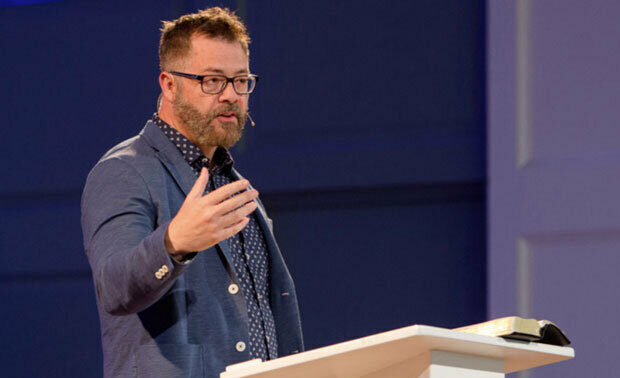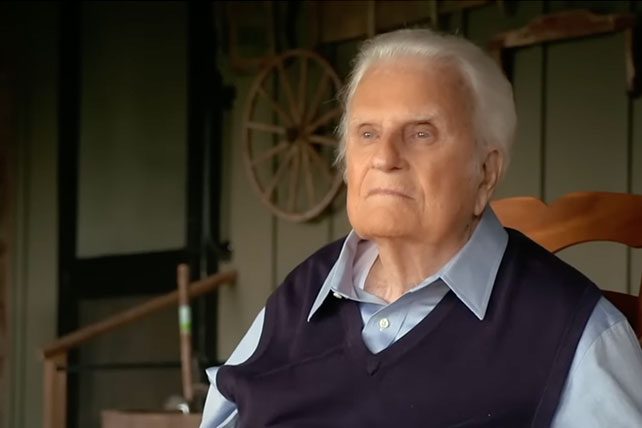When The Bread Was Broken
Luke 24:13-35 NIV/84
3 Now that same day two of them were going to a village called Emmaus, about seven miles from Jerusalem. 14They were talking with each other about everything that had happened. 15 As they talked and discussed these things with each other, Jesus himself came up and walked along with them; 16 but they were kept from recognizing him.
17 He asked them, “What are you discussing together as you walk along?”
They stood still, their faces downcast. 18 One of them, named Cleopas, asked him, “Are you only a visitor to Jerusalem and do not know the things that have happened there in these days?”
19 “What things?” he asked.
“About Jesus of Nazareth,” they replied. “He was a prophet, powerful in word and deed before God and all the people. 20 The chief priests and our rulers handed him over to be sentenced to death, and they crucified him; 21 but we had hoped that he was the one who was going to redeem Israel. And what is more, it is the third day since all this took place. 22 In addition, some of our women amazed us. They went to the tomb early this morning 23 but didn’t find his body. They came and told us that they had seen a vision of angels, who said he was alive. 24 Then some of our companions went to the tomb and found it just as the women had said, but him they did not see.”
25 He said to them, “How foolish you are, and how slow of heart to believe all that the prophets have spoken! 26 Did not the Christ have to suffer these things and then enter his glory?” 27 And beginning with Moses and all the Prophets, he explained to them what was said in all the Scriptures concerning himself.
28 As they approached the village to which they were going, Jesus acted as if he were going farther. 29 But they urged him strongly, “Stay with us, for it is nearly evening; the day is almost over.” So he went in to stay with them.
30 When he was at the table with them, he took bread, gave thanks, broke it and began to give it to them. 31 Then their eyes were opened and they recognized him, and he disappeared from their sight. 32 They asked each other, “Were not our hearts burning within us while he talked with us on the road and opened the Scriptures to us?”
33 They got up and returned at once to Jerusalem. There they found the Eleven and those with them, assembled together 34 and saying, “It is true! The Lord has risen and has appeared to Simon.” 35 Then the two told what had happened on the way, and how Jesus was recognized by them when he broke the bread.
Have You Ever Eaten With Any Body Who Was Famous?
Have you ever eaten with anybody famous? Well, I thought I was going to once, when I got an invitation to breakfast with Jimmy Carter when he was running for president. But, I think I told you that when I arrived at the hotel early that Sunday morning, there was no breakfast, only a cup of coffee, because all the danish had already disappeared.
But, I came close one day in Nashville. I was in a local bakery called Bread and Company in Green Hills near where we lived. It was lunch time and I was about to order a sandwich, when in walked Reese Witherspoon with her new baby. She was not glamorous at all. She looked just like anybody else with a new baby — sweat pants, a T-shirt, and running shoes. However, she did not invite me to join her for lunch, so I got my sandwich and left. Well, today we have a story about a couple of guys who almost got to eat with someone famous, too.
The Wonderful Story of the Emmaus Road
Today we have a wonderful story about an appearance of Jesus after his resurrection. You know this story, the road to Emmaus story. It is the evening of resurrection Sunday. Two followers of Jesus, not members of the disciple band which has now shrunk to eleven with the death of Judas, are walking back home. They are headed to the little village of Emmaus, which Luke tells us was about 7 miles from Jerusalem.
How long would it take three men accustomed to walking everywhere to walk 7 miles? Well the average human can walk about 3 miles an hour, so maybe 2 or 3 hours because it sounds like they are walking slowly, and sadly.
Now let’s assume that Jesus joins them about 30-minutes outside of Jerusalem. That would make sense because there is still quite a large crowd of people who have come for Passover, and are staying until Pentecost, because both of these are important feast days in Jewish life.
The Jewish historian, Josephus, recorded that in the first century there were 256,500 sacrifices made in the Temple for that Passover. He calculated that no more than 10 people would sacrifice together, so he arrived at a figure of approximately 10-times the number of sacrifices, or 2.7-million people present in Jerusalem. I personally think that is a little high, just based on the size of Jerusalem, but other scholars have estimated that over 1-million people crowded into the city of Jerusalem for Passover. This is a city that normally housed about 120,000-to-200,000. So, even if the population swelled to 5-times its normal size, that’s a big crowd in a relatively small city.
My point is that Jesus could join these two disciples outside the city without being noticed, especially if it is getting late, and everyone is scurrying home after a busy workday. Because, remember, we celebrate Jesus’ resurrection by worshipping on what the first century Christians came to call “the Lord’s Day” but they did not.
So, Cleopas and another unnamed disciple are heading for home. Undoubtedly they have been with the disciples because they are amazed that their walking companion hasn’t heard the news about Jesus. Even though crucifixions were not rare in the area around Jerusalem — Rome had crucified 2,000 residents of Jerusalem during the uprising when Herod the Great died — the crucifixion of Jesus had gotten everyone’s attention.
So they ask their companion, “Are you only a visitor to Jerusalem?” meaning, “Where have you been, man? How could you have missed what has happened during the past three days?”
And so they tell about Jesus. First, they back off a little bit when they describe him — “He was a prophet” but then they add, “powerful in the things he both said and did.”
But “they crucified him.” And, revealing their profound sorrow and disappointment, they add, “We had hoped that he would be the one to redeem Israel.” Meaning, of course, to overthrow the Roman rule, restore the sovereignty of the nation, and establish again a king on the throne of David.
“But,” they said, “its been three days.” In addition, they added that the women had a crazy story of Jesus being gone, and angels appearing to them who said Jesus was alive. But, of course, the disciples investigated and they found the tomb empty just like the women said, but not angels and no Jesus.
Then, Jesus, still unknown to them, begins to teach them. Of course, Jesus Bible was what we call the Old Testament, the Law and the Prophets. And so Jesus walks them through the prophecies that tell about the Messiah.
But the most amazing question he asks them is this — “Did not the Christ have to suffer these things and then enter his glory?”
Of course, we understand from this side of the empty tomb that that is exactly what happened, but they didn’t. One of the reasons they didn’t was because popular Jewish thought of that day did not allow for the Messiah to suffer. Isaiah talks about a “suffering servant” but many thought that was the one who would come before the Messiah. Little did they know that the Messiah himself would suffer, and die, and rise from the grave.
And after all of that, they still don’t get it. But the hour is getting late, and it was the custom of that day to ask a stranger who had nothing to eat to join you for food, and then to offer him shelter.
So, Cleopas and the other disciple ask Jesus to eat with them. Preparations are made, the food is placed on the table, and then Luke says –
When he was at the table with them, he took bread, gave thanks, broke it and began to give it to them.
How many times had Jesus done that before? How many times had they eaten together, either out in the hills of Galilee or at a friend’s home, or with Mary, Martha, and Lazarus, or in a room like the upper room where they share their last meal together.
Jesus begins his ministry with eating and drinking actually. At the wedding in Cana of Galilee, he turns water into wine. All the guests are amazed because usually the host serves the best first, but the guests at that wedding thought the host had saved the best for last.
He feeds 5,000 on one occasion, and 4,000 on another. Even on the hilllside the ritual is the same – Jesus thanks God, breaks the bread, and the disciples distribute it. And not only is there enough, there are 12 basketfuls left over — one basket for each of the 12 disciples who did not believe there was anyway possible to feed 5,000 people.
But Jesus is also accused, because it’s true, of eating with tax collectors and sinners. Apparently, those are two separate categories, because to call a tax collector a sinner in the first century was an insult to sinners!
He’s also accused of eating and drinking too much, because his detractors call him a glutton and a drunkard. But, for people like Zacchaeus, the diminutive tax collector who plays host to Jesus for a dinner, Jesus is a life-changing guest.
And, then the last time he is with his disciples, Jesus takes the bread, blesses it and breaks it, and says, “this is my body, take and eat.”
It is at the blessing and breaking of the bread that these two disciples recognize Jesus. Not at Bible study while they’re walking on the road with him. But at the table where they have shared fellowship together.
It was when the bread was broken that they realized who Jesus really was.
It was when the bread was broken that all the Bible study made sense.
It was when the bread was broken and he handed them the pieces he had blessed that they knew that the Bread of Life stood before them.
The Story of Broken Bread
So, what do we make of this story today? Well, it’s a great story. It’s one of my favorite stories told about the 11-or-so appearances of Jesus. I like it because you can see it. You can see the sorrow and grief in the faces of these two disciples. You can see the long dusty road, taking them back to their home, a home that possibly Jesus had visited before. You can see the three companions talking, gesturing, shuffling their sandal-clad feet through the dust on the well-worn pathway.
You can also see the wonder and delight. The joy when they realize who their companion has been. The energy that seizes them immediately upon their recognition of Jesus. They turn and run quickly back the 7-miles they have just slowly plodded along. They run back and tell the Eleven, the original disciple band, that “when he broke the bread” they knew it was Jesus.
So, what else does this story say to us today? Other than being a really good story with great characters and drama?
I think the thing it says to me is that Jesus is known best and recognized most quickly when he is offering us his hospitality. Even though it was not his house, Jesus assumes the role of host. Even though these men do not recognize him, he assumes that it is his responsibility to be hospitable. They have invited him, now he returns their offer of hospitality with his own.
And so he does what he has done a thousand times. He gives thanks to God his Father, he blesses the bread; and, then he breaks the solid loaf, to give to each person present.
Jesus demonstrates gratitude and bounty. He is thankful, and there is enough. He acts to acknowledge the gift and the Giver, and then gives to those who need food.
It is in our hospitality that others can see Jesus. Even if they can’t see him in our Bible studies, or in our worship services, it is when we share table fellowship, and take the risk of hospitality that Jesus is most clearly seen.
Hospitality is not about eating with friends and family. Hospitality is about welcoming the stranger, risking rejection, risking our reputations, risking all that we are to show those who have nothing who Jesus is.
So, Jesus ate with sinners and tax collectors. Of course, we know that we are all sinners. But in first century Judaism, there was a distinction made between the righteous and the unrighteous. The righteous were those who kept the Law, like our friends the Pharisees. Of course, they were righteous by their own understanding of what that meant, but nevertheless, they were considered righteous, which was the opposite of being a sinner.
We have another good picture of that when Jesus tells the story of the two men who go up to the Temple to pray. One is Pharisee, the other a publican or tax collector. The Pharisee prays, “Lord, I thank you that you have not made me like that man.” The publican prays, “Lord, have mercy on me a sinner.”
That’s the difference. So, Jesus eats with people whose hands aren’t clean, and whose lives are even worse. He eats with them because no one else who represents God will. The chief priests won’t. The Pharisees won’t. The Sadduccees won’t. No one will eat with them because no one who was righteous wanted to eat with an unclean sinner.
So, when Mother Teresa started her home for the dying in Calcutta, she went to people no one else wanted. Not sick people who could get better, and whose photographs could fill the pages of a glossy brochure proclaiming the success of her mission. No, she not only opened a home for the dying, she went into the streets and helped them come to a place where they could die attended by kindness and caring nuns and volunteers.
When Albert Schweitzer saw two men beating a sick horse all the way to the stockyard where the horse was going to be slaughtered, he kept the picture of that poor animal in his head until he decided that he would study medicine and go to Africa as a doctor.
To live a life of hospitality is to welcome others into your life, at great cost to yourself. Hospitality isn’t just tea and cookies. Hospitality is sharing our lives with those who need us most. And those are usually the people we want the least to do with.
Hospitality is kindness, compassion, concern, caring, provision, openness, and love. Hospitality is an act of unselfishness at great expense by a Samaritan toward a Jew who was beaten on the road.
Hospitality is welcoming children as we did this morning, into our circle of faith, realizing that the investment we make in them as parents and as a community will not pay off now or in 10 years, or in 20 years. But recognizing that what was passed on to us, we need to pass on to them.
When we practice hospitality, that is when the world sees Jesus in our lives and actions. Its one thing to feed the poor, its another to eat with them.
When I worked a the Greater Nashville Arts Foundation in the early 1990s, one of the projects the Art Foundation sponsored was lunch for the homeless. But, this wasn’t a sandwich handout from the back of a van. The Foundation conference room was opened to business people and the homeless who shared a meal together, and then discussed the current book they were all reading. No mention was made of the “plight of the homeless.” In that room men and women who had lost their dignity because they lived on the streets, reclaimed some of it for one hour, as they shared their thoughts on great literature with other men and women gathered around that table.
When he broke the bread, they recognized him. Wouldn’t it be great if the same could be said for us as we practice hospitality in a world that seeks to divide us into categories, rather than unite us in Christ.















